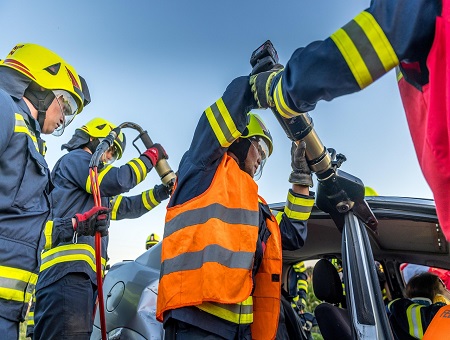Mistakes to Avoid After a Motor Vehicle Accident on Vacation
 Vacations are supposed to be the break we all look forward to. The bags are packed, the playlists are ready, and the road is calling. But what happens when something goes wrong? You’re enjoying the open road in San Antonio—or maybe somewhere new—and out of nowhere, there’s a collision.
Vacations are supposed to be the break we all look forward to. The bags are packed, the playlists are ready, and the road is calling. But what happens when something goes wrong? You’re enjoying the open road in San Antonio—or maybe somewhere new—and out of nowhere, there’s a collision.
Nobody plans for a car accident while on vacation. That’s why, when it does happen, many people are caught off guard. And in the rush to figure things out, they end up making quick decisions that can cause more problems later. Knowing what to avoid in those first few hours can save a lot of stress down the road.
Here’s a list of common mistakes people make after a car accident while on vacation—plus how to steer clear of them.
1. Not Calling Local Authorities Right Away
Let’s be honest—vacation mode makes everything feel a bit more casual. When there’s a minor bump or scrape, it’s tempting to wave it off and move on, especially if the other driver seems agreeable.
But skipping that call to the police? That’s a mistake that can cause problems later. Even a small crash should be officially reported. A police report provides a clear, unbiased record of what happened. This becomes really important if injuries appear later or if there are disagreements about who was at fault.
Sure, no one wants to spend part of their trip waiting by the roadside. However, having proof of the incident can save a lot of time, money, and stress afterward.
2. Failing to Document the Scene
Accidents are disorienting. After the initial shock, most people just want to move on. But if no one grabs their phone to snap pictures or write things down, important info slips away fast.
Photos are your best friend here. Get shots of the cars, the street signs, the damage, and even the weather conditions. Write down the time, names of people involved, and what was said. If someone saw the accident, ask for their contact info.
It only takes a few minutes, and it could make things way easier later on if questions come up.
3. Handling Everything Alone
Being in an accident is already overwhelming. Now imagine trying to navigate unfamiliar state laws, speak with insurance adjusters, and juggle paperwork—all while far from home and trying to keep your vacation on track. It’s a lot to deal with.
In these moments, many travelers don’t realize that legal help isn’t just for big lawsuits—it’s often the key to making sure nothing gets overlooked. Take, for example, how a San Antonio motor vehicle accidents lawyer, True Law Firm, often steps in to assist visitors who’ve been involved in crashes. They help them understand local laws and what to do next in a clear, manageable way.
Support like that can turn a stressful situation into a more guided, less confusing process. You don’t have to figure it all out alone, and that relief can make a big difference.
4. Ignoring Minor Injuries or “Shaking It Off”
After a crash, adrenaline takes over. You might feel fine at first. But that doesn’t mean everything is okay.
A sore neck, stiff back, or dizziness can sneak up later. Some people wait too long to see a doctor, thinking the pain will pass. That delay can be risky, not just for health, but also if a claim needs to be filed.
So, get checked out, even if you feel alright. Most urgent care centers or clinics will see you quickly. It’s better to catch issues early than deal with bigger problems later.
5. Admitting Fault Too Soon
Right after an accident, many people instinctively apologize—even if they didn’t cause it. It’s a natural reaction, especially when emotions are high. But saying “sorry” can be taken as admitting fault, which may later be used against you during insurance claims.
Instead of making guesses or assumptions, focus on the facts—what you saw, what you heard, and any damage you noticed. Avoid blaming yourself or the other driver. Let the police and insurance companies handle that part.
Staying calm and clear-headed with your words can protect you from serious misunderstandings later on.
Conclusion
No one plans to deal with a crash on vacation. But if it happens, knowing what to avoid can make a tough situation easier. Don’t rush, don’t panic, and don’t go through it alone if you don’t have to.
Being prepared and aware helps protect your trip and your peace of mind. So while you’re packing sunscreen and snacks, keep this list in your back pocket, just in case the unexpected comes along for the ride.